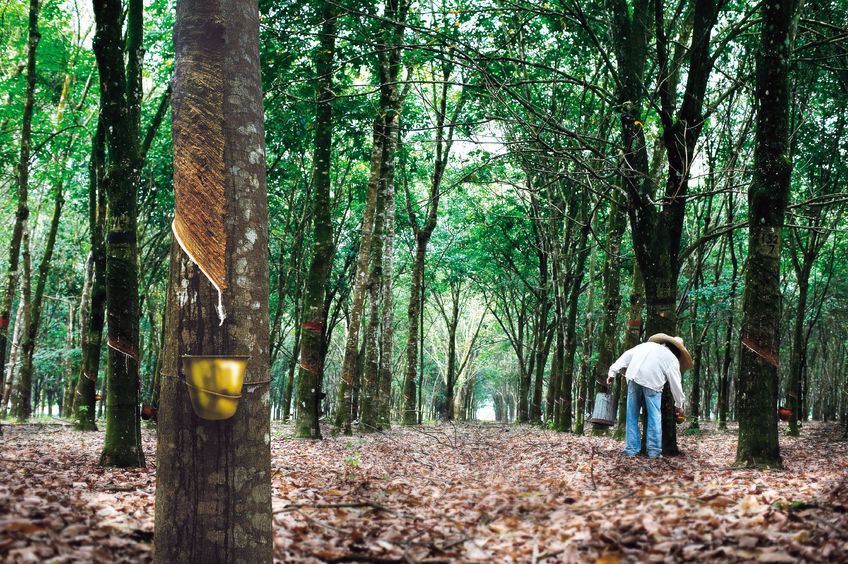
In some respects, it would stand to reason that Thailand’s earnest and hard-working rubber farmers are struggling at present.
After all, Thailand is currently operating in a market that is set to become saturated during the progressive course of 2017, as the Thai government prepares to release a further 125,000 tons of rubber stock for consumption.
Additionally, the rise of synthetic rubber has also intensified competition in the marketplace, even accounting for the environmental issues posed by man-made materials.
A quick glance at brokerage sites like LCG also confirms that rubber is not an in-demand commodity among investors, making it hard for farms to generate investment or evolve over time.
Hope for rubber farmers
The decline in demand and falling prices is prevalent across the global rubber market, as the level of supply continues to grow at a disproportionate rate.
As a result of this, Indonesian rubber now currently sells for just Rp 9,000, marking a significant drop from the Rp 12,000 per kilogram recorded in 2016.
Thailand remains one of the world's largest producers of sustainable rubber, and its farmers have been given some cause for optimism in recent times.
To begin with, Tata Motors Thailand has announced that it will invest 500 million baht into the development of a new assembly plant in Bangkok, in the hope of restoring the nation as the heartbeat of the Indonesian automotive trade.
A unit of the successful Indian car-maker, Tata Motors Thailand has announced its robust growth plans after the cessation of its 10-year deal with the Thonburi Automotive Assembly Plant, which had cast considerable doubt over the nation's ability to compete in an increasingly busy marketplace.
The plant will be opened in conjunction with the brand's new partner BGAC, while its proposed 8,000 assembly capacity is sure to have a positive impact on the demand for natural rubber within the region.
Sustainably-harvested
There is also some assistance being provided in more unlikely forms, namely the iconic American auto brand General Motors (GM).
GM has made a recent pledge to use only sustainably harvested rubber as part of its manufacturing process, having established a refined set of purchasing requirements that all supplier must adhere to.
These revolve around the reduction of deforestation and the upholding of basic human and workers' rights, and Thailand's rubber farmers are well-placed to benefit from this.
This is a considerable development, particularly when you consider that GM buys an estimated 49 million tires annually.
By complying with these requirements and continuing to produce sustainable rubber for the global marketplace, Thailand's farmers can enjoy a fruitful partnership with GM (and similar brands) while securing the longevity of the natural resource.
While there is no doubt that rubber farmers face a challenging climate at present, the growth of Thailand's automotive sector and the rising, global demand for sustainable materials will help to sustain them over time.
By Andre Jackson, in Thailand
